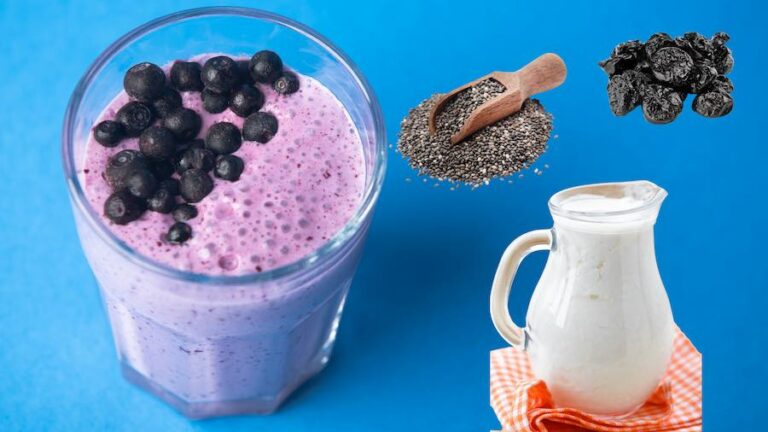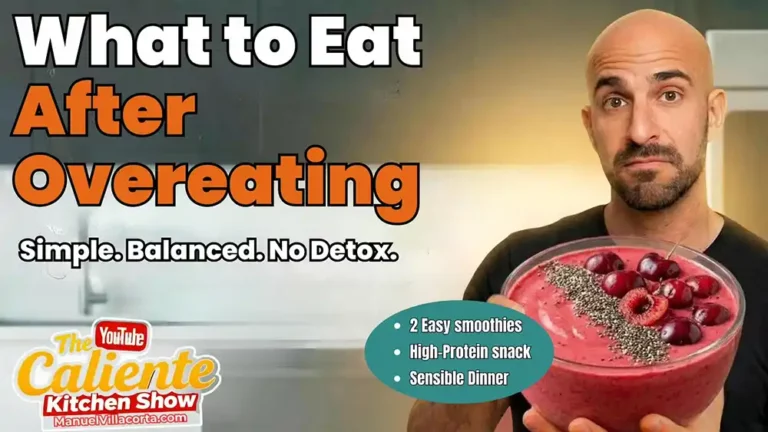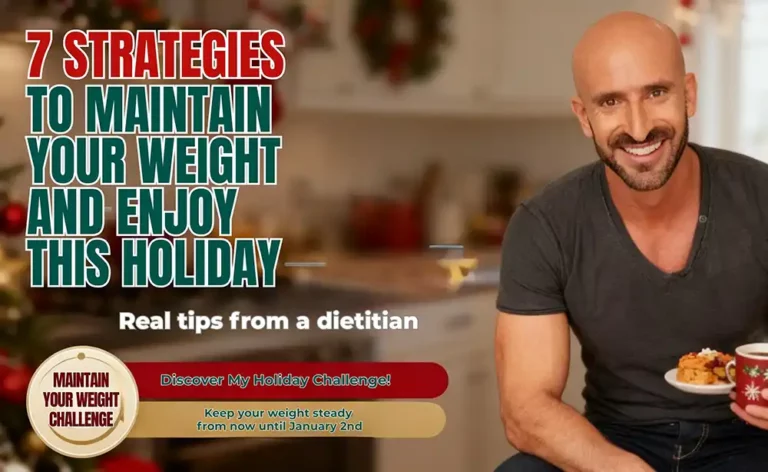Are you wondering if probiotics can help you lose weight? I’m here to give you the most up-to-date research. I’ll provide guidance about probiotic-rich foods, and whether or not you need a probiotic supplement to help you reach your weight goals.
We normally associate bacteria with germs and disease, so you may be confused why one of the latest health crazes involves actually eating bacteria. However, there is a good type of bacteria that has been proven to provide us with a variety of health benefits. So much so, that it is still being widely researched. These good-for-you bacteria are called probiotics. Let’s start by briefly looking at what probiotics are, their benefits, and how this ties into weight loss.
What Do Probiotics Do?
Your body has an entire population of bacteria in your gut, on your skin, in your mouth and various other places. This “community” of bacteria is collectively called your microbiome and every single person’s microbiome is unique to them. Some people have a healthy microbiome, while others have a not so healthy environment in their gut. This can unfortunately impact the way your body processes food and can also make it more difficult to lose weight if the right type of bacteria isn’t plentiful.
However, not all of the bacteria are probiotics. For a bacterium to be considered a probiotic, it needs to be able to be consumed without making you sick, survive in your gut after consumption and have a benefit to your body. These benefits are why probiotics have been a buzzy topic in the world of nutrition and health in recent years. Especially in the world of gut health.
Benefits of Probiotics
From the research that is available to us, science seems to suggest that keeping a healthy population of bacteria in your gut has a number of health benefits. These include:
- supporting the integrity of your digestive tract
- reducing inflammation
- helping facilitate digestion
- combating bad bacteria that could make you sick
One thing to note is there is only a certain amount of “food” in your gut for bacteria to feed off of. And both good and bad bacteria battle for it in your gut. If there is a larger population of good bacteria around, the bad bacteria that can make you sick will not survive. This is a big benefit of keeping a healthy number of probiotics in your system.
So, Can Probiotics Help You Lose Weight?
The answer is maybe. After examining the current research, the consensus is that more research is needed to identify more closely which strains and amounts of certain probiotics may be helpful in weight loss or fat loss.
However, some of the promising results have seen that some obese or overweight individuals had a reduction in adiposity, body mass, and energy intake. Research has also found that probiotics may have a more beneficial effect on weight and fat loss for women than with men.
With that being said, there have been limitations with the study designs, and not enough of a consensus for me to make a strong statement to say to go all in on a certain probiotic supplement specifically for weight loss.
What are the Connections Between Obesity and the Gut Microbiota?
Obesity can influence low-grade inflammation, metabolism, and intestinal barrier function. This inflammation can also impact insulin resistance. Because of this impact, identifying mechanisms to counteract these effects could be beneficial.
There are two main types of bacterial phyla: Bacteroidetes and Firmicutes. When the number of Firmicutes are increased and Bacteroidetes decrease, it was shown to increase energy storage in adipose tissue (fat tissue). It is also common that with obesity there is a less diverse gut microbiota profile. These are two factors that are reasons to believe that probiotics and positively changing the gut microbiota can influence weight and fat mass.
What Has the Research Shown About Certain Probiotic Strains for Weight Loss
The existing research has examined varying strains of probiotics, such as different strains of lactobacillus in capsule and powder form, combinations of several bacteria strains, yogurt with added probiotics, and more. Currently, the probiotic species that are believed to have the most promising effects on weight loss or fat loss are:
- Bifidobacterium
- Lactobacillus spp.
However, keep in mind that there are strains of each of these species, and the amount of the specific strain also matters.
What is the Proposed Mechanism of Probiotics Impacting Your Weight?
The idea behind probiotics positively impacting the gut microbiota is that the existence of certain bacteria can interact with nutrients to impact the metabolism of these nutrients, and release bioactive compounds to influence energy metabolism and immunity. It is also proposed that the absence of certain bacteria can impact fat mass.
In one study, women who were on a daily calorie reduction of 500 calories, and who were also taking a probiotic strain of Lactobacillus rhamnosus CGMCC1.3724 (LPR) combined with a prebiotic saw a decrease in body weight. The proposed mechanisms were a reduction in fat mass as well as circulating leptin levels.
Limitations in Research
It is important to note that there are many limitations in the existing studies. One main limitation is not being able to differentiate if weight loss is due to the calorie deficit/food intervention, or from the bacteria strain itself. Research also needs to evaluate if the continual intake of these foods is required to maintain the positive gut microbiota.
Where Do You Find Probiotics?
Did you know that you can find probiotics in many forms, from pills to pickles to kombucha? It appears that probiotics from food provide more benefit to your gut health than probiotic supplements. This is because probiotics that are in food are still very active and living, and these foods also tend to contain fiber which acts as a prebiotic.
Prebiotics are types of fiber that probiotics feed off of, thus keeping a healthy population of good, multiplying bacteria in the gut for longer. So, what types of foods contain probiotics? These would be what we call “fermented foods” and include the following:
- Yogurt
- Kimchi
- Miso
- Fermented vegetables (learn how to make your own here)
- Kefir
- Sauerkraut
- Kombucha
While I don’t recommend a specific probiotic supplement given the current literature, there is absolutely no harm in including probiotic-rich foods in your diet. I actually highly recommend it! These foods can help improve the diversity and composition of your gut microbiota.
When Should You Take Probiotics for Weight Loss
As mentioned, taking a specific probiotic for weight loss still requires more literature. But if you’re eating foods right in probiotics, the time of day in which you eat your probiotics doesn’t mean much. It’s more about the frequency. We recommend eating at least one serving of the above probiotic foods daily along with up to 25-30 grams of fiber.
An easy way to do this is to focus on eating fiber-containing foods like whole grains, fruits and vegetables each day. They should be varying in color since produce often has the type of soluble or insoluble fiber to act as a prebiotic to feed the bacteria in your gut. Indirectly, these foods are also anti-inflammatory and promote satiety, which means they can help reduce belly fat and control hunger, thus helping you to lose weight.
Can You Take Too Many Probiotics?
If you have a medical condition that weakens your immune system, have recently had surgery, take antibiotics or have other medical conditions, talk to your health care provider before consuming supplemental probiotics.
Listen to your body, follow the recommendations above and read your instruction labels if you decide to supplement for general gut health purposes.
Takeaway from Can Probiotics Help You Lose Weight?
So, can probiotics help you lose weight? As mentioned above, there isn’t a clear enough answer at this time. More research is needed to understand the impact of different probiotic strains on body weight and fat mass. The strain and dose seem to still be the most important factor in the determining the effectiveness.
However, that being said, I highly recommend focusing on including more probiotic-rich foods in your diet. So, here is a delicious recipe, packed with both prebiotics and probiotics to kickstart your food-rich probiotic journey!

If you’re struggling to find success with your weight loss and want expert guidance, contact me to set up a 20 minute free consultation for my weight loss program.




